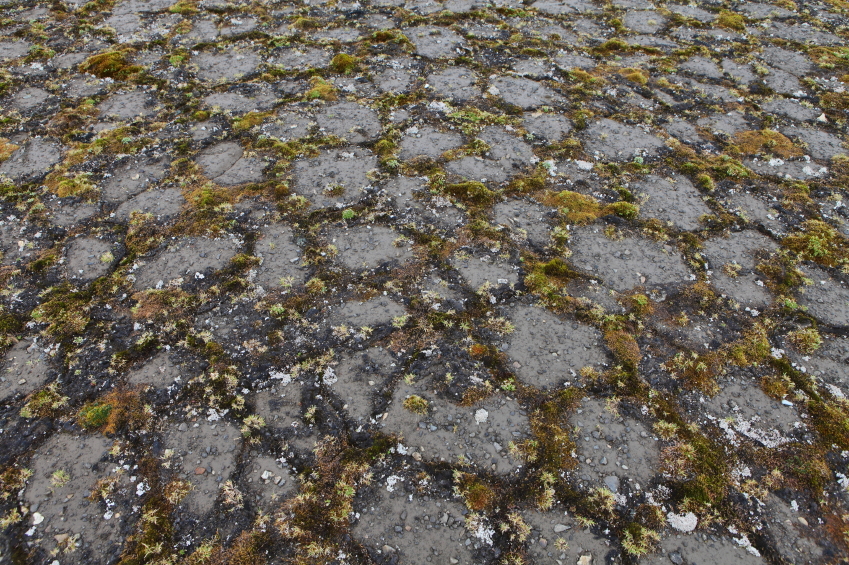Expert calls permafrost warming in areas of Alaska 'unbelievable'


A free daily email with the biggest news stories of the day – and the best features from TheWeek.com
You are now subscribed
Your newsletter sign-up was successful
One of the world's leading experts on permafrost is sounding the alarm: Permafrost in parts of Alaska will likely start to thaw by 2070, releasing methane and accelerating climate change.
Permafrost is soil that is frozen throughout the year and has spent at least two years below the freezing point of water. It is found primarily in the Arctic, as well as in some Antarctic and Alpine regions, and researchers believe the amount of methane found in permafrost is equal to more than double the amount of carbon currently in the atmosphere. Prof. Vladimir Romanovsky at the University of Alaska and the monitoring organization Global Terrestrial Network for Permafrost said that in the northern part of Alaska, permafrost has been warming by about one-tenth of a degree Celsius every year since the mid-2000s. "When we started measurements it was -8C, but now it's coming to almost -2.5 on the Arctic coast," he told BBC News. "It is unbelievable — that's the temperature we should have here in central Alaska around Fairbanks but not there."
Warming permafrost has been connected to roads buckling, sinkholes forming, and trees falling over, and Romanovsky said evidence found in some areas of Alaska, including around Prudhoe Bay on the North Slope, points toward permafrost not only warming up, but thawing in roughly 50 years. "Permafrost won't start to thaw there in 20 years, because the latest rate of warming is too high and will bounce back, but if you look at the whole record it seems it will definitely start to thaw by 2070-80, and nobody was talking about that before," he told BBC News. "It was assumed it would be stable for this century but it seems that's not true any more."
The Week
Escape your echo chamber. Get the facts behind the news, plus analysis from multiple perspectives.

Sign up for The Week's Free Newsletters
From our morning news briefing to a weekly Good News Newsletter, get the best of The Week delivered directly to your inbox.
From our morning news briefing to a weekly Good News Newsletter, get the best of The Week delivered directly to your inbox.
Prof. Ted Schuur of Northern Arizona University told BBC News that the record wildfires in Alaska over the summer also helped speed up the thaw, as the permafrost was exposed to warmer air. "Even if we stopped all emissions today, the Arctic has momentum where there is going to be more warming, more permafrost degradation, and some carbon coming out already — we have started the ball rolling in some senses," he said. "It is probably not triggering a runaway climate effect but it adds to our problem. It accelerates the problem of climate change. To me that is worrisome because it makes the problem harder."
A free daily email with the biggest news stories of the day – and the best features from TheWeek.com
Catherine Garcia has worked as a senior writer at The Week since 2014. Her writing and reporting have appeared in Entertainment Weekly, The New York Times, Wirecutter, NBC News and "The Book of Jezebel," among others. She's a graduate of the University of Redlands and the Columbia University Graduate School of Journalism.
-
 Political cartoons for February 16
Political cartoons for February 16Cartoons Monday’s political cartoons include President's Day, a valentine from the Epstein files, and more
-
 Regent Hong Kong: a tranquil haven with a prime waterfront spot
Regent Hong Kong: a tranquil haven with a prime waterfront spotThe Week Recommends The trendy hotel recently underwent an extensive two-year revamp
-
 The problem with diagnosing profound autism
The problem with diagnosing profound autismThe Explainer Experts are reconsidering the idea of autism as a spectrum, which could impact diagnoses and policy making for the condition
-
 Nobody seems surprised Wagner's Prigozhin died under suspicious circumstances
Nobody seems surprised Wagner's Prigozhin died under suspicious circumstancesSpeed Read
-
 Western mountain climbers allegedly left Pakistani porter to die on K2
Western mountain climbers allegedly left Pakistani porter to die on K2Speed Read
-
 'Circular saw blades' divide controversial Rio Grande buoys installed by Texas governor
'Circular saw blades' divide controversial Rio Grande buoys installed by Texas governorSpeed Read
-
 Los Angeles city workers stage 1-day walkout over labor conditions
Los Angeles city workers stage 1-day walkout over labor conditionsSpeed Read
-
 Mega Millions jackpot climbs to an estimated $1.55 billion
Mega Millions jackpot climbs to an estimated $1.55 billionSpeed Read
-
 Bangladesh dealing with worst dengue fever outbreak on record
Bangladesh dealing with worst dengue fever outbreak on recordSpeed Read
-
 Glacial outburst flooding in Juneau destroys homes
Glacial outburst flooding in Juneau destroys homesSpeed Read
-
 Scotland seeking 'monster hunters' to search for fabled Loch Ness creature
Scotland seeking 'monster hunters' to search for fabled Loch Ness creatureSpeed Read
